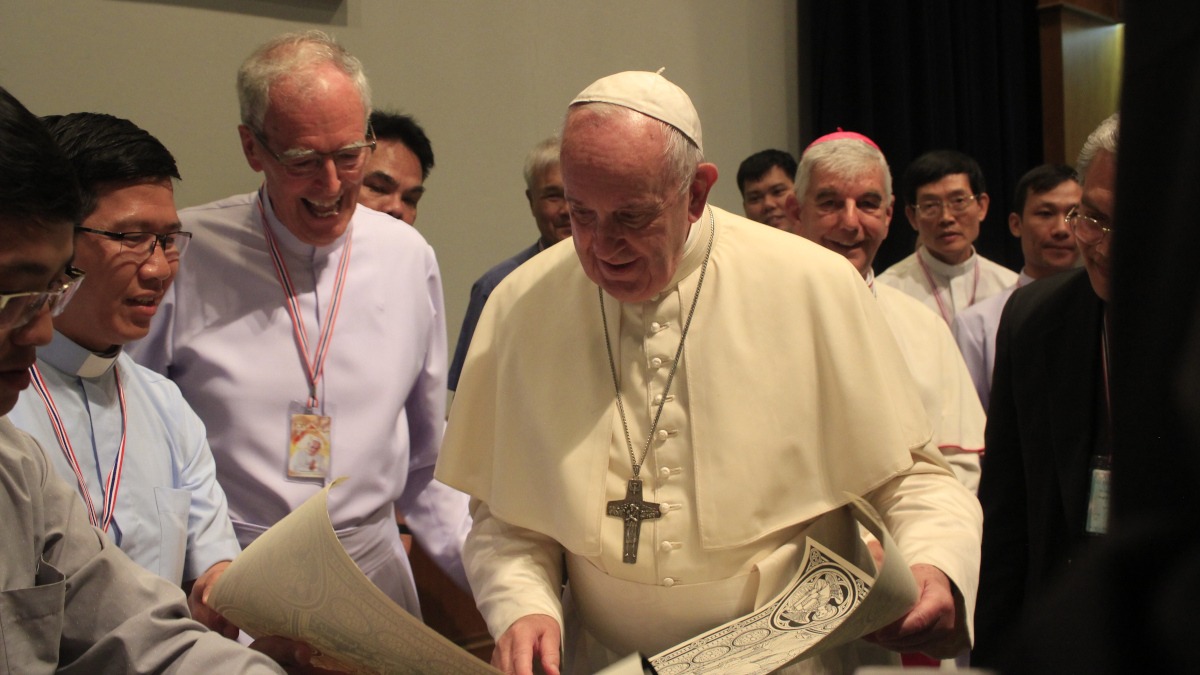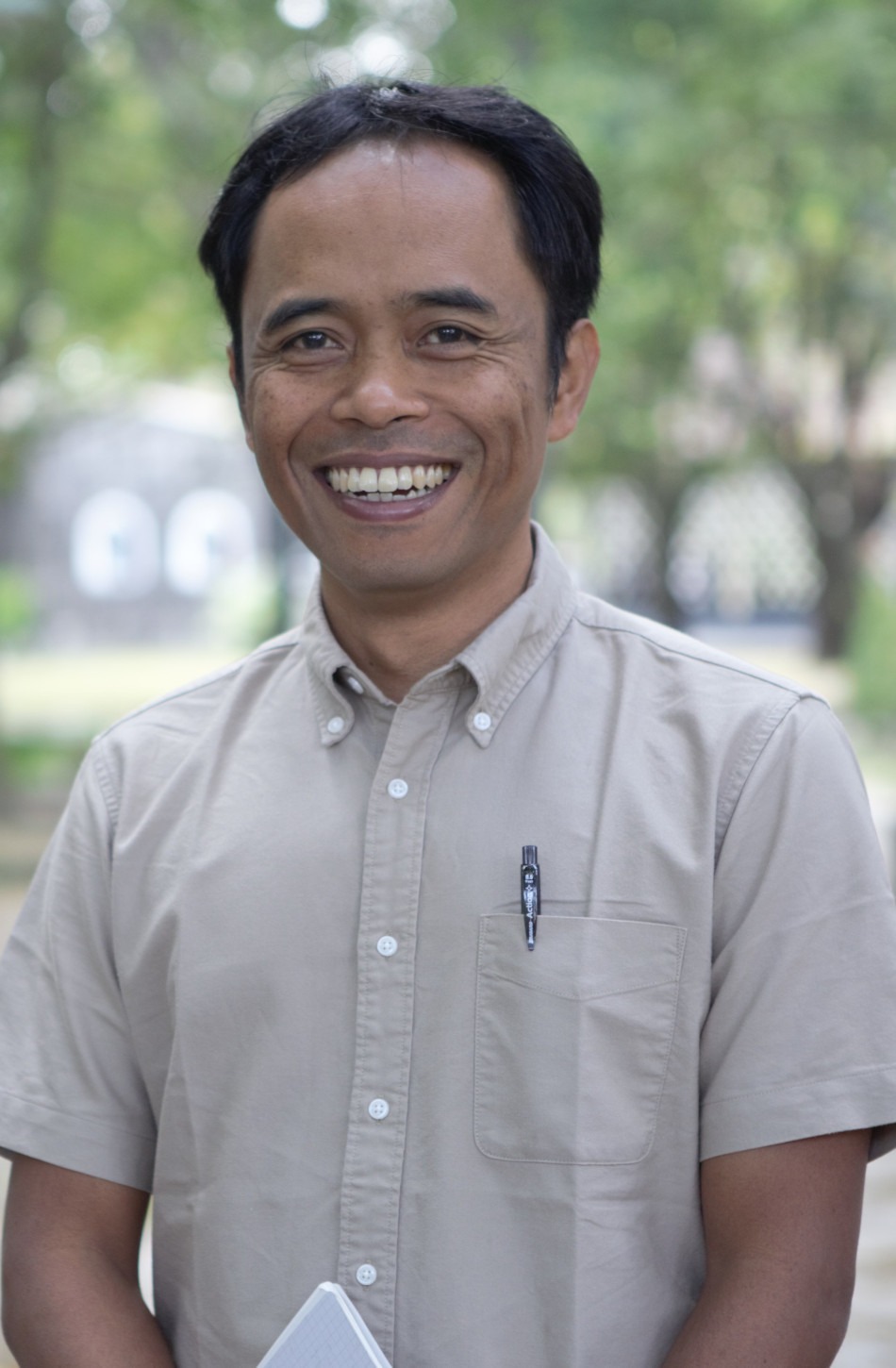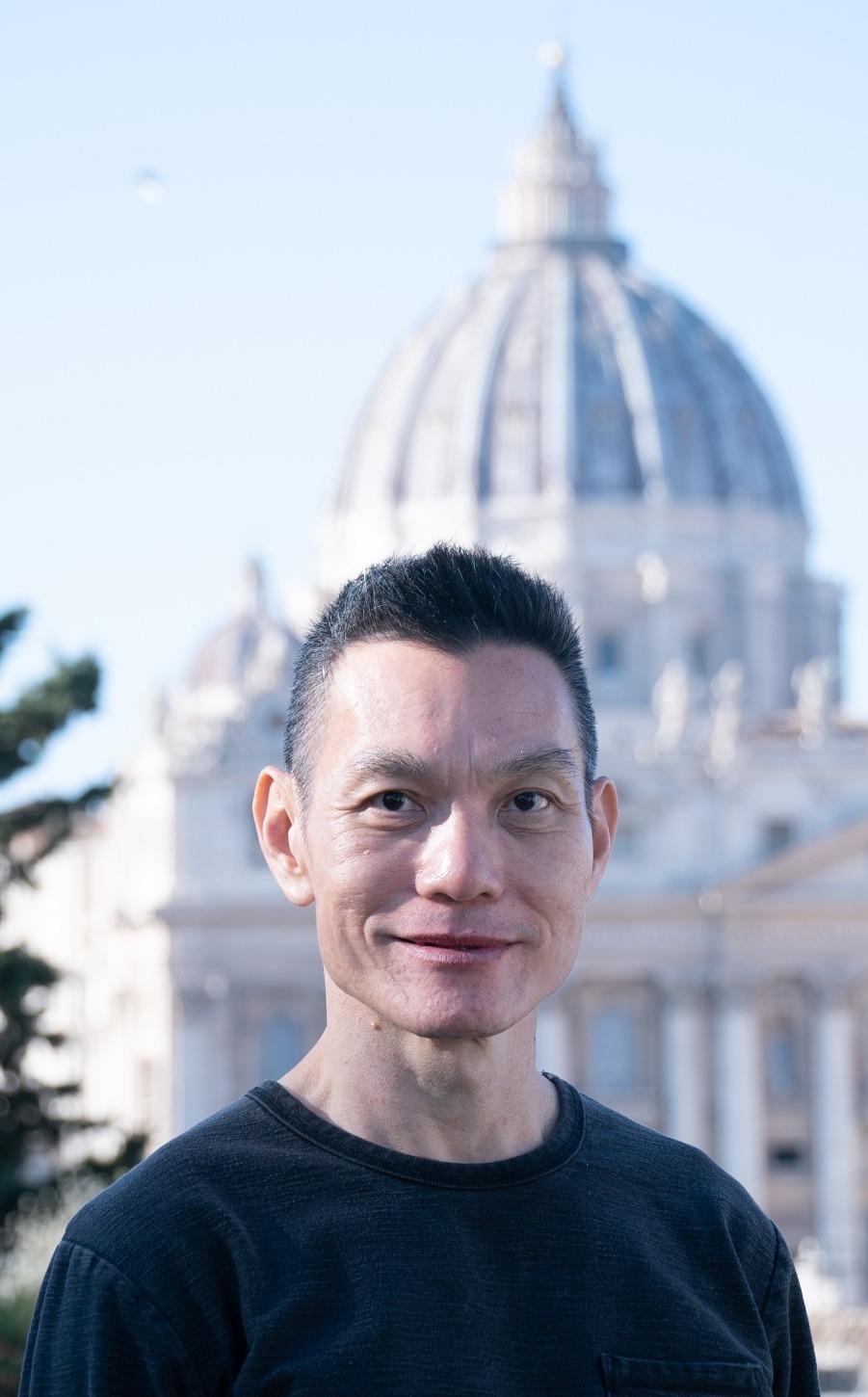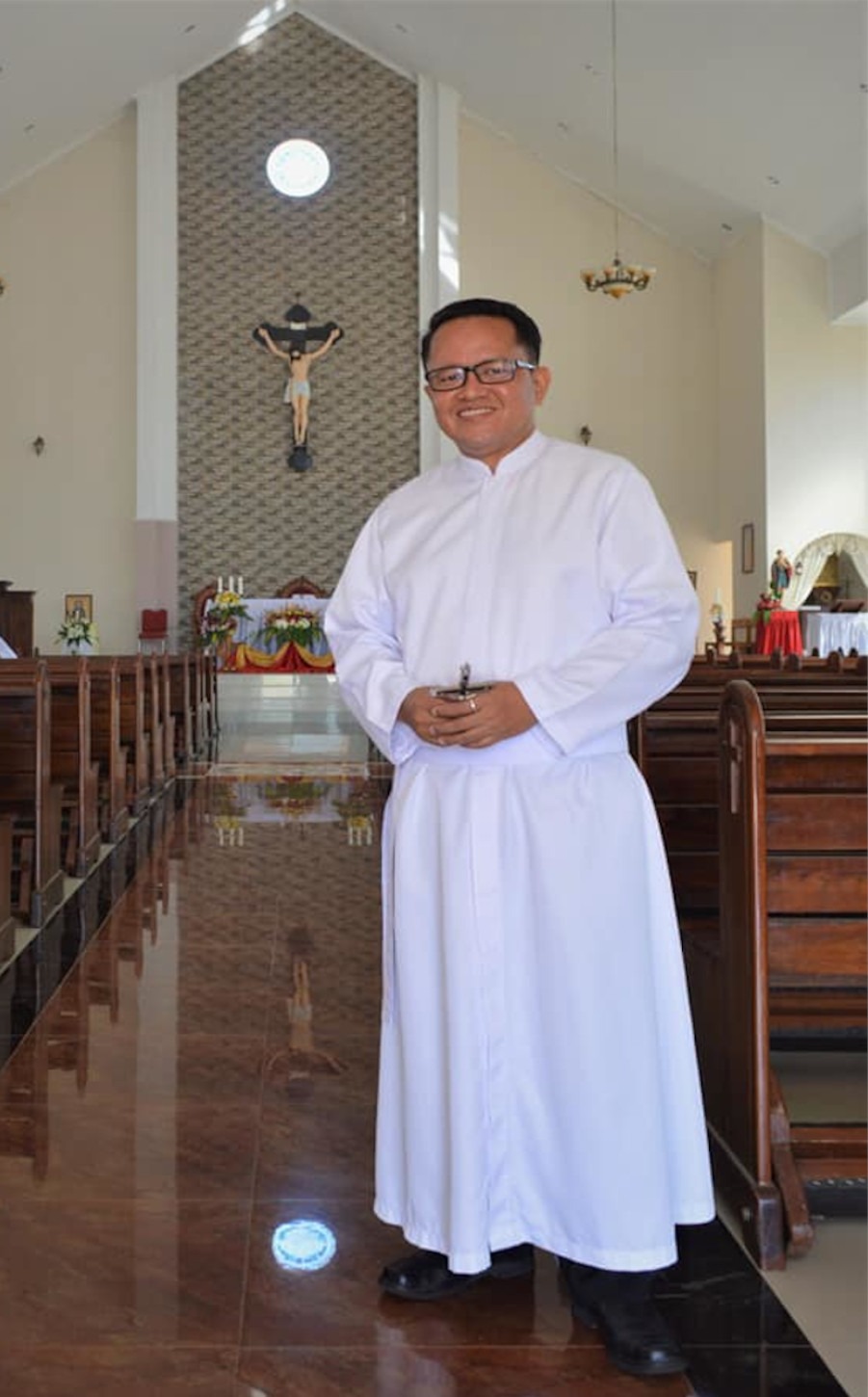
Pope Francis with the Jesuits in Thailand, 2019
Pope Francis is making his 45th apostolic journey from 2 to 13 September, visiting Indonesia, Papua New Guinea, Timor-Leste, and Singapore. This marks his return to Asia since 2019, when he visited Thailand and Japan. The upcoming 12-day trip will be the Holy Father’s longest trip abroad throughout his 11-year papacy.
During his visit, Pope Francis will meet with young people, the elderly and the sick, children with disabilities, government officials, bishops, priests, religious and missionaries, and hold interreligious dialogues. As with all his apostolic journeys, he will have private meetings with the local Jesuits in these places.
In anticipation of Pope Francis’ apostolic visit, the major superiors of the Jesuit Indonesian Province, Malaysia-Singapore Region, and Timor-Leste Region reflect on the significance of the Holy Father’s visit to their nations and its implications for the local church.
Fr Benny Juliawan SJ, Provincial, Indonesian Province

Indonesian Catholics number around eight million, or roughly four percent of the country’s 280 million people. It is a tiny minority in the largest Muslim country in the world. The relationship between Catholics and the majority Muslim population has been largely peaceful. Of course, discrimination happens, and there have been conflicts, some quite violent in the past, but there is no systemic persecution thanks to the country’s secular constitution. Catholics are in fact quite prominent in various aspects of public life, including business, education, and government. Catholic schools, universities, hospitals, and charitable organisations are particularly well known. Moreover, the Catholic church is an active player in the interfaith dialogue. The papal visit will undoubtedly put these interesting features under the spotlight for the world to see. It is not perfect, but an example nonetheless of how the church is thriving as a minority.
As a side note, Pope Francis will invite the Jesuits to a private audience. Obviously, we are thrilled with this prospect and are already the envy of many. With his wisdom and Jesuit background, he will bring us so much joy and challenge us in equal measure.
Fr Francis Lim SJ, Superior, Malaysia-Singapore Region

The Jesuits of Malaysia-Singapore also invite Catholics in Singapore to offer their personal petitions for prayers and a special papal blessing. Petition can be written and placed in a designated box at the Kingsmead Centre reception counter between now and 7 September. During a private audience with Pope Francis, we will present the box to him and request his blessing for all the petitions collected. We will also be praying for these petitions throughout.
The Archdiocese of Singapore is preparing well for the upcoming visit, both spiritually and logistically. See their website: https://www.popefrancis2024.sg/ Each Sunday, in all parishes, including the Jesuit parish of St Ignatius, this prayer is said by everyone after the Prayer of the Faithful:
“We pray for our Holy Father, Pope Francis, and the Universal Church, that his Apostolic Visit to Indonesia, Papua New Guinea, Timor-Leste, and Singapore may inspire us to bring the joy of the Gospel to all peoples, renew and strengthen our faith, convert hearts, foster unity, and bring hope to humanity. Amen.”
There will be a closed-door event on 13 September, which is an interreligious dialogue between the Pope and youths. It is also hosted by young people from different religions. Being a multicultural and multireligious country, albeit small in the eyes of the world, Singapore has a high rate of harmonious living among people of different backgrounds. The visit of Pope Francis will further enhance the current voice of moderation with his presence, especially from the head of the worldwide Roman Catholic Church, that, at the level of the diocese, is at the forefront of interreligious dialogue in Singapore.
Fr Erik John Gerilla SJ, Superior, Timor-Leste Region

Amidst the festivities of the pope’s visit, there are also speculations about the strong message Pope Francis might deliver to the people and our leaders, both state and church. I hope that the Holy Father will address our leaders and encourage them to combat tirelessly poverty and injustice, which affect the majority of our population. Peace and order, as well as the well-being of our youth, will also be timely topics for his message. As for the church, we hope that Pope Francis will not be silent on the issue of clericalism, of the need to strengthen our conviction to being a church for the poor, and invite our leaders and elders to constantly work towards the evangelisation of local cultures.
The theme of the visit of the Holy Father to Timor-Leste is “May your faith become your culture” (Que a vossa fé seja a vossa cultura). These were words spoken by Pope Francis himself when he addressed the three bishops of Timor during their ad limina visit to the Holy See last year. There are lingering tensions between local culture or customs and the Catholic faith. Syncretism is being largely tolerated, but it is hoped that Pope Francis will highlight to the faithful the supreme human values that must be upheld amidst the polarising influences of local culture and Catholic teachings. Traditional dances and rituals will feature predominantly during his visit, but I hope that the vibrancy we convey will reflect the common aspiration of the people for a church and nation that is grounded in faith and justice. While we do not expect all of the country’s problems to be resolved after the pope’s visit, we pray that, as with Pope John Paul II’s visit in 1989, it will inspire renewed nationalism and trust in the Church, with a preferential option for the plight of the poor.






